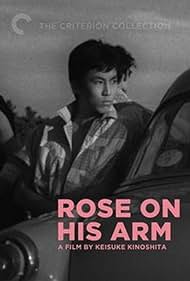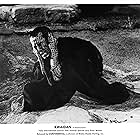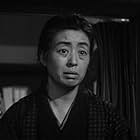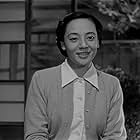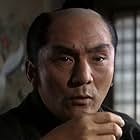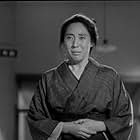Añade un argumento en tu idiomaA young man ignores his mother's pleas and becomes drawn to a life of crime.A young man ignores his mother's pleas and becomes drawn to a life of crime.A young man ignores his mother's pleas and becomes drawn to a life of crime.
- Premios
- 3 premios en total
Shin Tatsuoka
- Sakurai
- (as Susumu Tatsuoka)
Argumento
¿Sabías que...?
- CuriosidadesBest Foreign Language Film winner at the Golden Globes in 1957.
Reseña destacada
Katsuo Nakamura is a layabout. His hardworking mother -- she gets 30 yen for each paper rose she assembles -- gets him a job at Ryûji Kita's factory, but he hates everything: the hard work, the grind, the elegantly calligraphed letters his mother writes, the attentive kindness and encouragement of his supervisor. He doesn't have to fall into bad company, he's already in it, but he falls in with the worst of them all: Kita's son, Akira Ishihama.
Keisuke Kinoshita's movie attempts to get into the mind of Nakamura's character. He seems to be lazy because he feels he can't really get ahead. In a Japanese society that was rapidly growing richer in the period of this movie, there is much to desire, whether it's a pack of cigarettes or sushi or women, but he sees no prospect of getting any of these themselves, only as the unthinking gifts of those who have more than they possibly use; and those people, to whom everything is given without effort, have nothing to strive for. They are bored, in search of new thrills. These people -- exemplified by Ishihama -- recognize the gifts they have been given, search for something they can do. Trained to stupidity and laziness, in a world where everything can be gotten just by asking his parents, he has nothing to offer except pain.
It's a dark movie by Kinoshita, devoid of his usual flashes of black humor, and at times painful to watch. Its also brilliant.
Keisuke Kinoshita's movie attempts to get into the mind of Nakamura's character. He seems to be lazy because he feels he can't really get ahead. In a Japanese society that was rapidly growing richer in the period of this movie, there is much to desire, whether it's a pack of cigarettes or sushi or women, but he sees no prospect of getting any of these themselves, only as the unthinking gifts of those who have more than they possibly use; and those people, to whom everything is given without effort, have nothing to strive for. They are bored, in search of new thrills. These people -- exemplified by Ishihama -- recognize the gifts they have been given, search for something they can do. Trained to stupidity and laziness, in a world where everything can be gotten just by asking his parents, he has nothing to offer except pain.
It's a dark movie by Kinoshita, devoid of his usual flashes of black humor, and at times painful to watch. Its also brilliant.
- boblipton
- 19 ago 2019
- Enlace permanente
Selecciones populares
Inicia sesión para calificar y añadir a tu lista para recibir recomendaciones personalizadas
Detalles
- Duración1 hora 25 minutos
- Color
- Mezcla de sonido
- Relación de aspecto
- 1.37 : 1
Contribuir a esta página
Sugerir un cambio o añadir el contenido que falta

Principal laguna de datos
By what name was Taiyô to bara (1956) officially released in Canada in English?
Responde